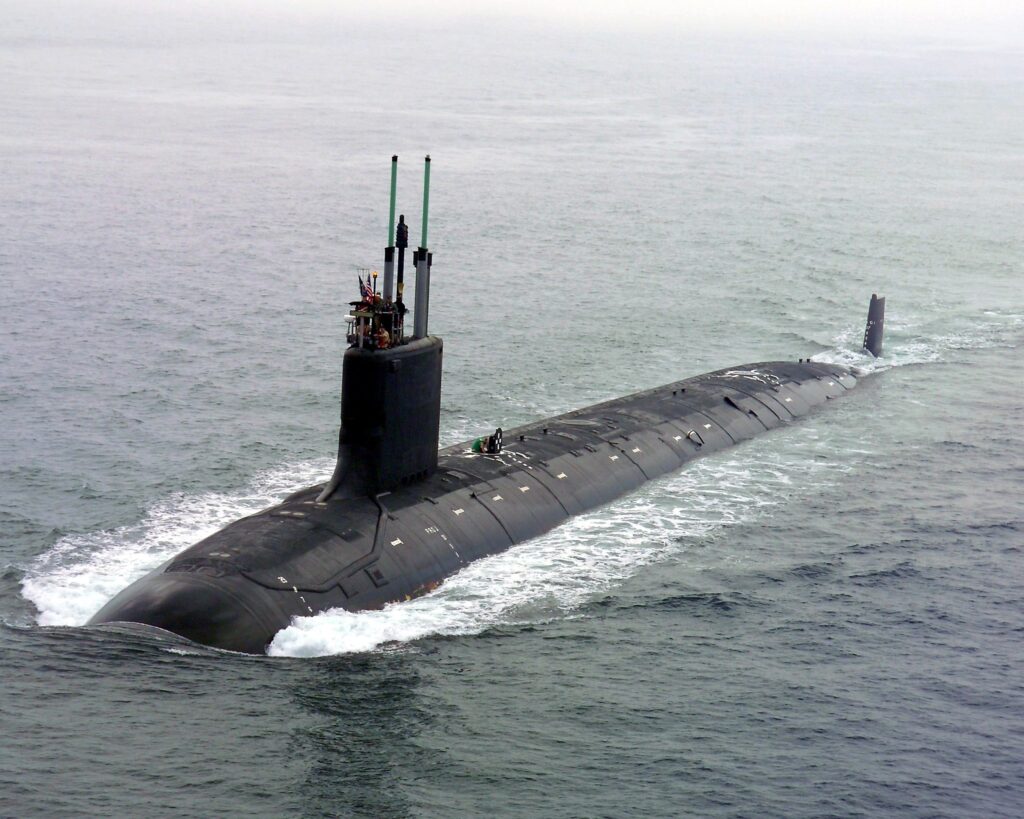
Picture: By U.S. Navy photo by General Dynamics Electric Boat – This image was released by the United States Navy with the ID 040730-N-1234E-002 (next). https://commons.wikimedia.org/w/index.php?curid=8224242
By Cllr Noel Hadjimichael
More than 100 years ago, Liberals were often the party challenging military spending, security and defence of the realm. We took Britain into the First World War in defence of an invaded Belgium and served in the 1940s Churchill Government. We got defence and voters knew it.
In the Cold War, we were champions of pluralism, liberty, decolonisation and western values. This was in opposition to USSR state centralism so loved by many current day dictators. We were, and remain, realists: radical but responsible.
This week’s announcement on a tripartite (Australian, American and British) submarine deal is not the subject of this blog. However, the framework, context and geopolitics behind the announcement is. Progressives, social democrats and liberals should take notice.
What has made three of the Five Eyes [also including Canada and New Zealand] turn so purposefully and publicly in this direction? The answer: defence science, capacity building, capital investment and operational structures. Realigned, tweaked and reinforced for today’s threats.
It is more than just the behaviour of Russia, China or Iran. It is a breakdown of the liberal world order that has positioned Britain poorly in this post Brexit era. There is a new global security setting that was unleashed by the pandemic: rogue states undermining democracy, leading to peer to peer warfare.
Neither the Conservatives nor Labour have a monopoly on patriotism. Serving personnel and their families (as well as veterans) are a sizeable demographic in many constituencies. Not just the South West shires, Norfolk, the Midlands or natural cities like Portsmouth. In every region of the United Kingdom, there is an increase in voter concern about our security (food, logistics, technology or military).
The war in Ukraine has heightened our focus. But so has the poisoning in Salisbury and the cyber attacks on our critical infrastructure.
The AUKUS framework is a long term and strategic pressure point to revisit our defence stance. We should ask ourselves: how do we protect our people, communities and institutions?
We don’t do borders well. Just ask the Government about its frustrating failures on Ireland or the Channel.
We don’t have the luxury of being the dominant global leader. But we still rank highly in critical capabilities: soft power, science and technology.
Our people are universally respected for professionalism, training and creativity. They deserve our resolve to get the politics correct.
Our new aircraft carriers have effective and demonstrable reach to the western hemisphere, the Straits of Hormuz, the Asia Pacific and beyond. Our airpower is critical to NATO and the European friends and allies many of us yearn to be closer to. Our Army is still seen as having the punch needed in the field. It has also offered Ukraine best in class training. We count. We matter in this space.
Understanding the new challenges and being the adults in the room come naturally to LibDems. We think, talk and debate.
We also often come down on the side of evidence, experts and the engaged voter.
Conference at York this weekend will deal with the nuclear deterrent. A sensible and suitable proposal. Those serving deserve our thanks and gratitude for their commitment. We as active party members must also play our part. We should reassure millions of LibDem voters that we understand the current global landscape.
As it is. Not as we may want it to be.
AUKUS is part of that landscape, as is an effective and continuous at sea deterrent.
Question it, challenge it but don’t ignore it. It is the same with our Conference. A liberal Britain is worth defending.
More on this can be found on nlcdefence.org.uk
Noel is Chair of the Defence & Security Circe of the National Liberal Club London. He is also a Liberal Democrat councillor on the London Borough of Kingston-upon-Thames